Summary
Introduction
In an era where digital technologies are reshaping every aspect of society and the economy, ensuring that Scotland’s young people develop robust digital literacy has become a national imperative. Digital literacy—the ability to access, manage, understand, integrate, communicate, evaluate, and create information safely and appropriately through digital technologies—has evolved from a specialized skill set to a fundamental requirement for full participation in modern life. For Scottish schools, the challenge extends beyond simply providing access to technology; it involves cultivating a comprehensive set of competencies that will enable students to thrive in an increasingly technology-driven economy. This article examines the current state of digital literacy education in Scottish schools, identifies key challenges in preparing students for the digital future, and proposes evidence-based solutions to strengthen Scotland’s approach to digital literacy education.
Current State of the Sector
Scotland has demonstrated a commitment to advancing digital literacy through various policy initiatives and frameworks. The Digital Learning and Teaching Strategy, first published in 2016, established a foundation for integrating digital technologies into Scottish education. More recently, as outlined in the National Improvement Framework plan for 2024, the Scottish Government has committed to developing a comprehensive digital strategy for education that highlights “the key role digital plays in our education system.”
The implementation of digital literacy education varies across Scotland’s schools. The Digital Schools Award Scotland program, highlighted during Scottish Digital Literacy Week 2025, provides a framework for schools to self-evaluate and develop their digital practices. As of early 2025, approximately 45% of Scottish schools have engaged with this program, though only about 30% have achieved the full award status.
The curriculum framework for digital literacy has evolved significantly. The Glasgow Framework for Digital Literacy & Computing Science (January 2025) exemplifies recent efforts to provide structured progression pathways for digital skills development. This framework aligns with Education Scotland’s digital vision diagrams that explore what digital means for learners, schools, and teachers.
Scottish Digital Literacy Week, held in May 2025, showcased the growing emphasis on digital literacy with events including educator webinars on digital citizenship, digital profiling, and the integration of artificial intelligence in education. The week featured sessions on “Launch and Update on Digital Literacy Guidance” as part of the Curriculum Improvement Cycle, indicating ongoing refinement of approaches.
The Digital Economy Skills Action Plan 2023-2028 acknowledges the critical role of education in addressing Scotland’s digital skills gap. The plan notes that “through the network of Scottish colleges, employers operating in the digital economy have access to a range of provision from digital literacy skills through to advanced technical skills,” highlighting the continuum from basic digital literacy to specialized technical competencies.
Recent data from Skills Development Scotland indicates that digital skills are among the fastest-growing requirements in job advertisements across all sectors, with an 83% increase in demand for basic digital skills in traditionally non-digital roles since 2020. This trend underscores the importance of digital literacy as a foundational skill for economic participation.
Challenges and Gaps in Policy
Digital Divide and Equity Concerns
Despite significant investment in digital infrastructure and devices, particularly accelerated during the COVID-19 pandemic, a persistent digital divide affects Scottish education. Research from the University of Edinburgh (2024) indicates that approximately 18% of students from the most deprived areas still lack reliable access to appropriate digital devices and internet connectivity at home. This creates an equity gap that can significantly impact educational outcomes and future opportunities.
The challenge extends beyond physical access to include what researchers term the “second-level digital divide”—disparities in the quality of digital experiences and support available to learners. Students from disadvantaged backgrounds often have fewer opportunities to develop advanced digital skills or receive guidance in navigating digital environments safely and effectively.
Teacher Confidence and Capability
The Teacher Digital Skills Toolkit published by Education Scotland (2022) aims to help teachers evaluate their own digital literacy skills and identify areas for development. However, recent surveys indicate significant variation in teacher confidence and capability regarding digital technologies. A 2024 study by the Educational Institute of Scotland found that only 56% of teachers felt adequately prepared to integrate digital technologies effectively into their teaching practice.
This challenge is compounded by the rapid pace of technological change, particularly with the emergence of artificial intelligence tools that are transforming educational possibilities and requirements. Many teachers report feeling overwhelmed by the constant need to update their skills and knowledge in this area.
Balancing Safety with Empowerment
Scottish schools face the complex challenge of balancing digital safety with digital empowerment. The “Educator Webinar – Digital Citizenship” featured during Scottish Digital Literacy Week 2025 emphasized a “data justice approach, in which all young people have a right to information integrity.” However, implementing this approach effectively requires navigating tensions between protecting students from online risks and enabling them to develop the agency and critical thinking skills needed for digital citizenship.
Overly restrictive approaches to digital safety can limit opportunities for students to develop resilience and judgment in digital environments. Conversely, insufficient attention to safety concerns can expose students to genuine risks. Finding the appropriate balance remains a significant challenge for policy makers and educators.
Curriculum Integration and Assessment
While Scotland has developed frameworks for digital literacy, challenges persist in integrating these skills meaningfully across the curriculum. Digital literacy is often treated as a separate subject rather than being embedded throughout learning experiences. This compartmentalization can limit students’ ability to apply digital skills in authentic contexts.
Assessment of digital literacy presents additional challenges. Traditional assessment methods may not adequately capture the complex, often collaborative and creative aspects of digital literacy. Without robust assessment approaches, it can be difficult to track progress and ensure all students are developing the necessary competencies.
Innovative Solutions and Approaches
Whole-School Digital Culture
Creating a whole-school approach to digital literacy involves embedding digital practices throughout the school culture and curriculum rather than treating them as add-on activities. The Digital Schools Award Scotland provides a framework for this approach, but implementation can be enhanced through several strategies:
- Developing digital literacy leadership teams that include representatives from across the school community, including students
- Creating digital literacy progression pathways that span all curriculum areas and year groups
- Establishing regular opportunities for sharing digital practices among staff and celebrating digital innovation
- Engaging parents and the wider community in the school’s digital journey through workshops, showcases, and collaborative projects
Schools like Inverclyde Academy have demonstrated the impact of this approach, with significant improvements in both digital skills and broader educational outcomes following the implementation of a whole-school digital strategy. Their model includes regular “digital discovery” sessions where staff and students explore new technologies together, breaking down traditional hierarchies and fostering a collaborative learning culture.
Authentic Learning Experiences
Digital literacy develops most effectively when embedded in authentic, meaningful contexts. Innovative approaches include:
- Project-based learning that requires students to apply digital skills to address real-world challenges
- Partnerships with local businesses and organizations that provide opportunities for students to use digital skills in workplace contexts
- Student-led digital creation projects that serve genuine purposes within the school or wider community
- Cross-curricular challenges that require integration of digital skills with subject knowledge
The “Developing the Young Workforce” initiative has supported such approaches through programs like “Preparing Young People for a Digital Future” (2024), which connects classroom learning with workplace applications. These programs help students understand the relevance of digital skills to their future careers and lives.
Adaptive Professional Learning
Addressing the challenge of teacher confidence and capability requires flexible, responsive approaches to professional development:
- Personalized learning pathways based on individual teacher needs and interests
- Peer mentoring and coaching models that leverage existing expertise within schools
- Micro-credentialing systems that recognize incremental skill development
- Regular protected time for exploration and experimentation with digital tools
The Teacher Digital Skills Toolkit provides a foundation for this approach, but implementation can be enhanced through more structured support systems. The “In Person Training – Adobe Express for Education” session during Scottish Digital Literacy Week 2025 exemplifies hands-on, practical professional learning that builds teacher confidence through direct experience.
Digital Citizenship Framework
Developing a comprehensive approach to digital citizenship can help balance safety concerns with the need to empower students as active digital participants:
- Age-appropriate progression in digital citizenship education from early years through secondary school
- Integration of critical digital literacy skills that enable students to evaluate online information
- Explicit attention to ethical dimensions of digital participation
- Student leadership opportunities in promoting positive digital citizenship
The “Live Lesson – Search for AI: Close reading not required?” featured during Scottish Digital Literacy Week 2025 demonstrates innovative approaches to critical information literacy, “offering several examples of how search engines might not give you the most relevant information, with some suggested strategies for navigating digital spaces overloaded with information.”
Conclusion
As Scotland continues to develop its approach to digital literacy education, the focus must extend beyond basic technical skills to encompass the full range of competencies needed for success in a technology-driven economy. This includes critical thinking, creativity, collaboration, and ethical awareness in digital contexts.
The challenges are significant—from persistent equity gaps to rapidly evolving technological landscapes—but so too are the opportunities. By implementing whole-school approaches to digital culture, embedding digital literacy in authentic learning experiences, supporting adaptive professional learning for teachers, and developing comprehensive digital citizenship frameworks, Scotland can strengthen its approach to digital literacy education.
The ultimate goal must be to ensure that all Scottish students, regardless of background or circumstance, develop the digital literacy needed not just to participate in the technology-driven economy but to shape it. This requires moving beyond viewing digital literacy as simply a technical skill set to recognizing it as a fundamental aspect of modern learning and citizenship—one that empowers young people to engage critically, creatively, and responsibly with digital technologies throughout their lives.





